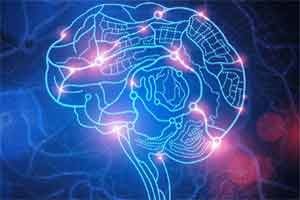- Home
- Editorial
- News
- Practice Guidelines
- Anesthesiology Guidelines
- Cancer Guidelines
- Cardiac Sciences Guidelines
- Critical Care Guidelines
- Dentistry Guidelines
- Dermatology Guidelines
- Diabetes and Endo Guidelines
- Diagnostics Guidelines
- ENT Guidelines
- Featured Practice Guidelines
- Gastroenterology Guidelines
- Geriatrics Guidelines
- Medicine Guidelines
- Nephrology Guidelines
- Neurosciences Guidelines
- Obs and Gynae Guidelines
- Ophthalmology Guidelines
- Orthopaedics Guidelines
- Paediatrics Guidelines
- Psychiatry Guidelines
- Pulmonology Guidelines
- Radiology Guidelines
- Surgery Guidelines
- Urology Guidelines
Low-intensity electrical stimulation of brain improves memory

Memory impairments are a prevalent, costly problem in many brain diseases and unfortunately, Medication and behavioral therapies have limited effectiveness in many cases.The researchers of Mayo Clinic have found that Low-intensity electrical stimulation in a specific area of brain can improve short-term memory. The findings have been published in Brain.
The researchers found word recall was enhanced with stimulation of the brain's lateral temporal cortex, the regions on the sides of the head by the temples and ears. Patients recalled more words from a previously viewed list when low-amplitude electrical stimulation was delivered to the brain. One patient reported that it was easier to picture the words in his mind for remembering.
"The most exciting finding of this research is that our memory for language information can be improved by directly stimulating this underexplored brain area," says Michal Kucewicz, Ph.D., a Mayo Clinic researcher in the Department of Neurology and co-first author. Dr Kucewicz compares the stimulation to "tickling" the brain.
"While electrical stimulation of the brain is emerging as potential therapy for a wide range of neurological and psychiatric diseases, little is known about its effect on memory," says Gregory Worrell, M.D., Ph.D., a Mayo Clinic neurologist and senior author of the article.
The Mayo researchers are part of a multicenter collaboration led by Michael Kahana, Ph.D., University of Pennsylvania in Philadelphia. This collaboration includes seven academic medical centers.
"The next step for this project is to determine how to best apply electrical current in terms of the exact location within this area of the brain, timing and parameters of stimulation," says Brent Berry, M.D., Ph.D., a Mayo Clinic researcher in the Department of Physiology and Biomedical Engineering and co-first author.
In this Brain paper, Drs. Kucewicz and Berry, and colleagues focused their study on four areas of the brain known to support memory for facts and events that can be consciously recalled.
The memory testing was done with patients undergoing evaluation for surgery to address seizures. These patients agreed to have their memory investigated using the electrodes implanted in their brains for surgical evaluation. It is common for people with epilepsy to have memory problems because the brain circuits that underlie memory function often are affected by epilepsy. In the study, patients were instructed to read a list of words -- one at a time -- from a computer screen. Electrical stimulation was applied some of this time. Patients then attempted to freely recall the words in any order.
Among 22 patients, the researchers found enhanced memory performance in the four patients with stimulation of the lateral temporal cortex but not among those with the other brain regions stimulated.
"These findings may lead to new stimulation devices that treat deficits in memory and cognition," says Jamie Van Gompel, M.D., a Mayo Clinic neurosurgeon specializing in brain stimulation and an author in the study.
The authors note study limitations include pain and seizure medications that may affect patient performance, the hospital setting that may disrupt patients' sleep and wake cycles, and the fact that epilepsy affects memory.

Disclaimer: This site is primarily intended for healthcare professionals. Any content/information on this website does not replace the advice of medical and/or health professionals and should not be construed as medical/diagnostic advice/endorsement or prescription. Use of this site is subject to our terms of use, privacy policy, advertisement policy. © 2020 Minerva Medical Treatment Pvt Ltd